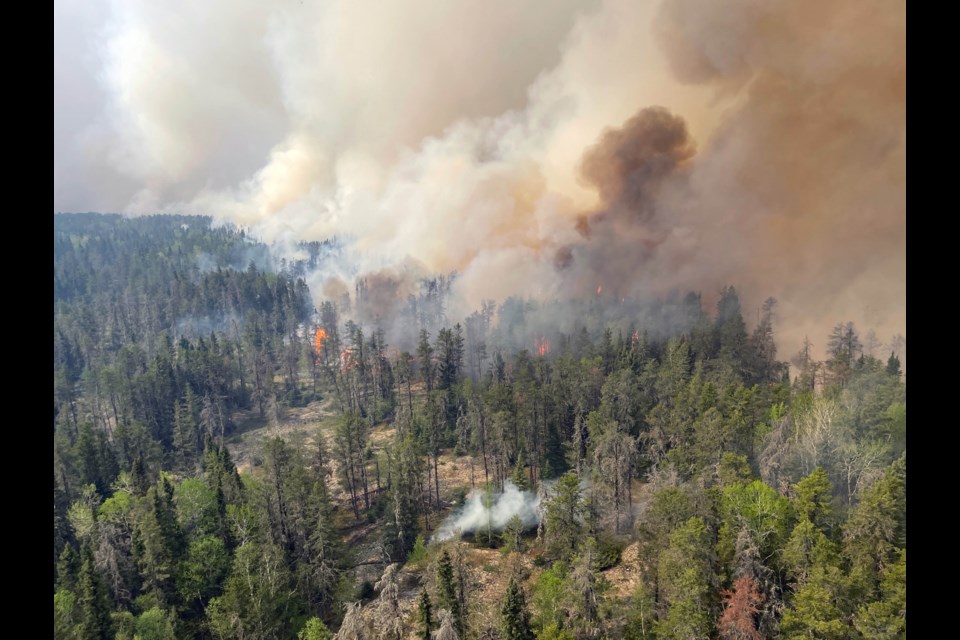DEER LAKE – The forest fire west of Wabaseemoong is no longer the largest in Northwestern Ontario now that a blaze farther north has grown to more than 65,000 hectares.
The Red Lake 12 fire that caused the evacuation of Deer Lake First Nation last week was blanketing 65,186 hectares as of Wednesday afternoon, according to the Ministry of Natural Resources. That’s more than 3.5 times the size estimated on Monday.
Smoke from fires to the west hurt the ministry’s ability “to monitor the growth of Red Lake 12 consistently throughout the operational window,” MNR fire information officer Allison Lake told Newswatch in an email.
“After several days of reduced visibility, conditions improved, allowing for high-level infrared scanning of wildland fire Red Lake 12.
“As a result of the scanning, the fire has now been remapped at 65,186 hectares, which accounts for growth that has occurred over the past few days.”
Lake said fire rangers have succeeded in “pushing into the fire’s perimeter” and keeping it away from Deer Lake buildings.
“Sprinkler protection for the community is now in place,” she added, “and FireRanger crews are working hard to maintain and monitor the protection of the buildings and infrastructure within the Deer Lake community.”
There are 86 MNR fire personnel dedicated to Red Lake 12, she said.
The previously largest fire in the Northwest region, the Kenora 20 fire that gave rise to an evacuation of Wabaseemoong Independent Nations in mid-May, was pegged at 36,000 hectares due to growth in its Manitoba portion.
Meanwhile, the MNR estimated the Nipigon 5 forest fire near Webequie First Nation had grown to more than 8,500 hectares by Tuesday evening from 7,500 on Monday.
The MNR’s latest fire updates declare the status of the Red Lake 12, Kenora 20 and Nipigon 5 forest fires as “not under control.”
Webequie declared a state of emergency late last week and is evacuating residents.
The MNR reported four new fires Tuesday, one of them being 0.7 hectares in area and less than a kilometre from the Pickle Lake townsite but under control.
The Northwestern Health Unit advised in a news release that health risks increase with smoke from wildfires.
“During heavy smoke conditions, reduce or reschedule outdoor strenuous activities,” the health unit’s release said.
“Some people are more likely to experience health effects when exposed to wildfire smoke, including those aged 65 and older, pregnant people, infants and young children, people with an existing illness or chronic health condition, and people who work outdoors.”
